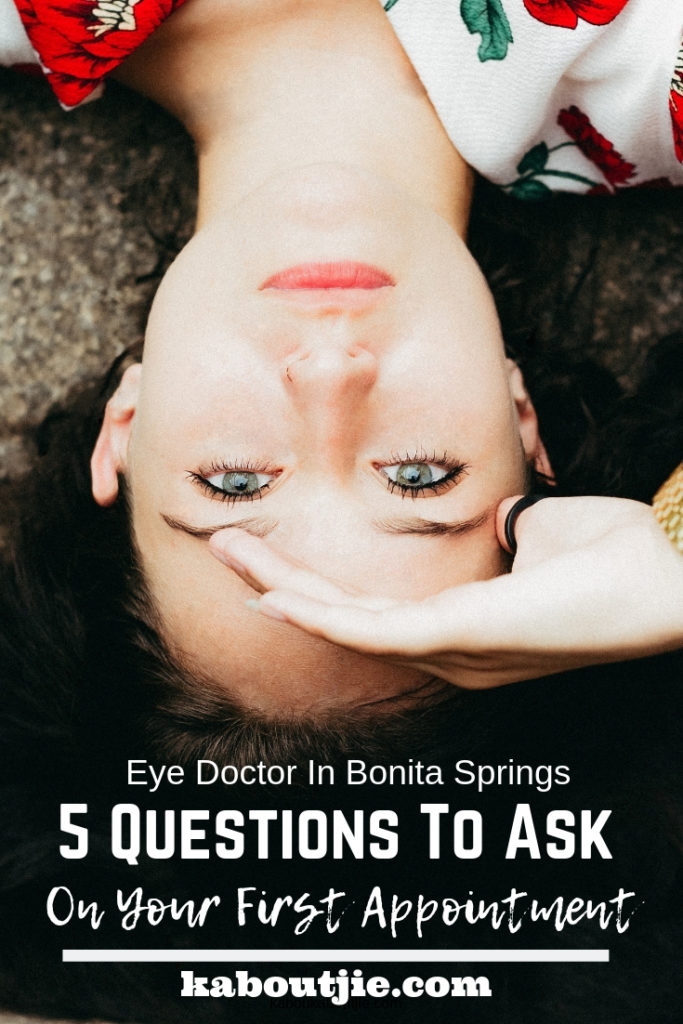Often, people take for granted basic bodily functions like the ability to reach out and grab stuff, walk around, or see things clearly. According to the World Health Organization (WHO), vision impairment is estimated to affect about 1.3 billion people in the world. It may not be considered too severe like losing a limb, but it still affects the quality of life of those who suffer from it.
If you’re scheduled to meet with your eye doctor for the first time, here are some questions you should ask:

- What Tests Should I Expect?
Ask the ophthalmologist to brief you on the entire eye examination and check-up process. This way, you get an idea of what you will be going through and can mentally prepare answers to questions about your medical history. Comprehensive eye exams from quigley eye specialists range from basic to complex such as reading eye charts, the most common of which is Snellen’s chart, or checking the structure inside your eyes using a high-powered lens, respectively.
Other tests that your eye doctor may conduct include:
- Visual Acuity Test – This exam gauges the sharpness of your vision. Typically, ophthalmologists check if you can see far away using a projected eye chart while measuring nearsightedness which involves reading from a hand-held acuity chart.
- Color Blindness Test – This screening check assesses if you have this deficiency, which is characterized by a difficulty in telling apart particular colors such as red and green or blue and yellow. This test can also inform your doctor of eye problems that may influence your color vision.
- Cover Test – It’s a standard method of examining how your eyes work together. Here, you need to stare at an object near you or across the room while the doctor covers one eye at a time. This is used to check for strabismus, a binocular vision problem that can lead to having lazy eye.
- Ocular Motility Testing – Also known as eye movement testing, it determines how quickly your eyes can follow a moving target and change focus on another one. Issues with eye movements lead to eye strain and affect your reading ability as well as sports vision.
- Stereopsis Test – This exam checks for depth perception, or the ability to distinguish the distance of objects in your visual field. Problems with this aspect of your vision can lead to challenges in driving and navigation.
- What are the Possible Causes of My Vision Loss?
Several factors contribute to visual impairment. Older adults aged over 65 are especially at risk for complete or partial vision loss. Some younger adults and even kids also suffer from difficulty in reading text that’s near or far away. To spot child eye problems, check how they hold their tablets or books. If they lean close to it, they probably need to have their vision assessed.
The possible causes of vision loss are:
- Cataracts – This occurs when the lens of your eyes become cloudy and light has difficulty reaching the retina, a light-sensitive tissue at the back of the eye. Minor surgery is used to correct this through cleaning the lens or replacing it with an implant.
- Diabetic Retinopathy – It comes as a complication of diabetes. This happens when weakened blood vessels in the retina burst and bleed into the eye. Laser surgery is available for this problem.
- Glaucoma – Glaucoma refers to the increased pressure, often painless, in the eye caused by excess fluid or a damaged drainage system. Because of its painless nature, it usually goes undetected. However, the increasing pressure can damage the optic nerves which send visual signals to your brain. This can be treated through medicine, surgery, or laser trabeculoplasty to drain fluid out of the eye.
- Macular Degeneration – The macula is an area in the center of the retina that houses light-sensing cells for detailed central vision. Deterioration in this part of the eye can lead to a blurred or dark area in the middle of your visual field. Macular degeneration can be slowed through early detection and antibiotic or eye injections. Other options are laser surgery and photodynamic therapy which also involves laser treatment to some parts of the retina.

- Will I Lose More Sight?
It may be alarming to consider this possibility, but you should be honest with your ophthalmologist about your concerns. Sight is a crucial part of daily life, and the way you live will drastically change if you don’t take care of your eyes now. Of course, your doctor will work with you to improve the health of your peepers and avoid blindness.
- What Lifestyle Changes Should I Make to Prevent Eye Disease?
Your lifestyle affects your entire body. What you do or don’t do every day can have a significant impact on the status of your vision. You may consider this first appointment with your eye doctor a routine checkup, but simple modifications in your daily life can have significant benefits for your eyes.
These are some things that you can do:
- Wear sunglasses to protect your eyes from the glaring sunlight when you go outdoors.
- Don’t smoke. Smoking heightens your risk for macular degeneration, glaucoma, cataracts, and diabetic retinopathy.
- Eat nutritious food that’s rich in vitamin A such as spinach, kale, salmon, tuna, eggs, nuts, and oranges.
- Have a baseline eye exam conducted when you reach 40 years old.
- Protect your eye when engaging in sports or repair jobs.
- Be aware of eye fatigue which happens when you stare at a book and computer or smartphone screen for an extended period.
- How Often Should I Have My Eyes Checked?
If you’re prescribed with eyeglasses or contact lenses, you may be required by your doctor to come for regular checkups once every two years. Individuals with healthy eyes should meet with their ophthalmologist every two years as well. Older clients who are more prone to diseases and complications may be recommended to have eye exams every year.
Conclusion
It’s best to bring someone you trust during your first appointment with your eye doctor. Your companion can support you as you go through the various tests during the checkup. Plus, they can also help you note down the ophthalmologist’s instructions on how to take better care of your vision.
 Kaboutjie SA Mommy Blogs by Lynne Huysamen
Kaboutjie SA Mommy Blogs by Lynne Huysamen




